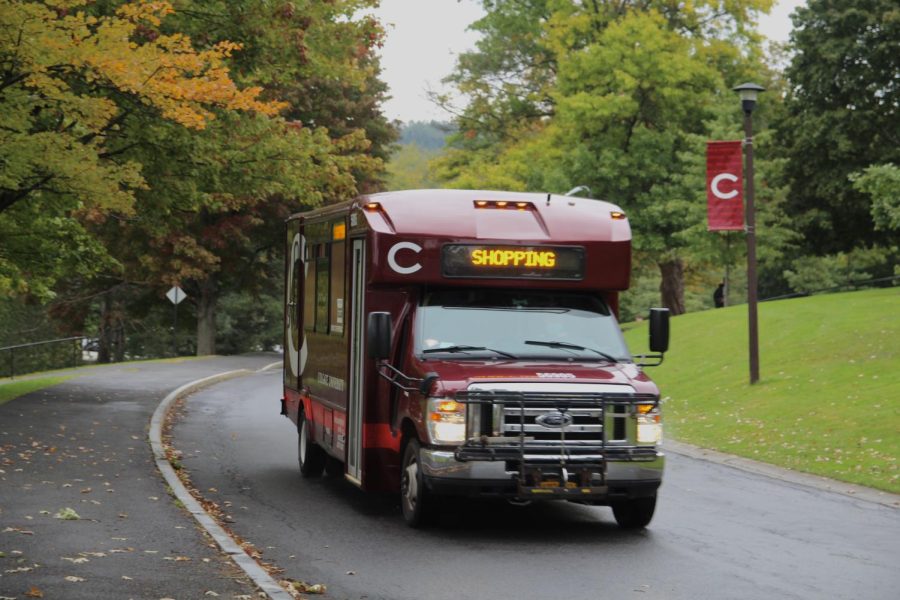Colgate Cruisers Experience Staff Shortages
Colgate Cruiser services, staffed by third-party vendor First Transit, have been experiencing staff shortages this semester. These shortages have impacted Cruiser service operations, as well as the students who use them.
Director of Purchasing Molly Ogden described the causes of the staff shortages within First Transit and how the Cruiser service has adapted to these changes. According to Ogden, the Colgate Cruiser staff shortages are the result of a nationwide Commercial Driver’s License driver shortage. With one driver resigning and cases of multiple drivers being out sick in recent weeks, the impact of staff shortages was greater on Cruiser operations.
“The risks surrounding the national labor shortage have been a focus of the University for the entire academic year,” Ogden said. “The challenges First Transit is facing due to the national labor shortage in conjunction with the pandemic have been consistent with the market … Unfortunately, last week when multiple drivers were out sick at once there was a disruption of service.”
The Colgate Maroon-News was in contact with a cruiser driver regarding the lack of drivers available. However, following an email from First Transit that declined interviews on behalf of its drivers, the driver later declined to go record.
“Our drivers are focused on operations and we are not able to accommodate a driver interview,” First Transit responded.
To maintain operations in light of the staff shortages, First Transit proposed to merge the Bookstore and Daytime Apartment routes, which has taken full effect as of April 4, 2022.
Staffing and hiring processes fall under the responsibilities of First Transit, not Colgate, Ogden noted, and further explained the steps taken by First Transit to alleviate the staff shortages.
“As communicated to us by First Transit representatives they have been doing community outreach on local sites as well as on national job sites such as Indeed” Ogden said.
The TransLoc application is an extension of the cruiser system and serves to state arrival times and provides a live-tracking feed of operating cruisers for all cruiser routes. Junior Yinuo Ding explained how the staff shortages have affected her experience using the Colgate Cruiser services this semester in regards to the TransLoc application.
“You never know if it’s going to arrive on time, even though the time appears in the app, sometimes they [Cruisers] don’t arrive. I don’t know why, but there are also instances where no GPS location can be found for cruisers,” Ding said. “I feel like it [the TransLoc app] is meaningless if we cannot see the real location of the cruiser, because we don’t know if it’s coming.”
Ding also described what the University could do to improve the Colgate Cruiser experience on campus.
“I feel like better communication and a more reasonable time table [would help] … I think it would be better if cruisers arrived just before classes … like five to ten minutes before class,” Ding said.
Junior Aiden Huang commented on the quality of communication from the University to students regarding the Cruiser staff shortage and further described his experience using the TransLoc application.
“I haven’t heard any communication from school officials, the only source of information I’ve had is from the Cruiser drivers themselves” Huang said. “I used to use TransLoc my first year, but by my third year it was useless. It doesn’t show anything of value, and especially in the morning, it doesn’t show any Cruisers on the app.”
Huang also gave his thoughts regarding the Cruiser drivers amidst the staff shortage, adding “they’re coping with the situation to the best of their abilities, but I don’t think it’s enough.”
In addition to the Bookstore and Apartment route merge on April 4th, the University will continue working to communicate with First Transit as hiring procedures take place.

Sydney Henderson is a senior from Whitesboro, NY concentrating in economics. She has previously served as a staff writer for the news section. On campus,...







